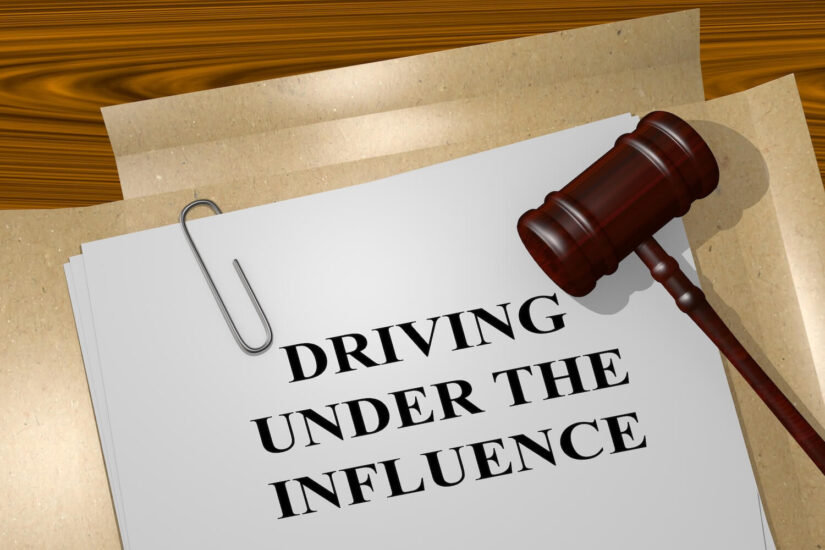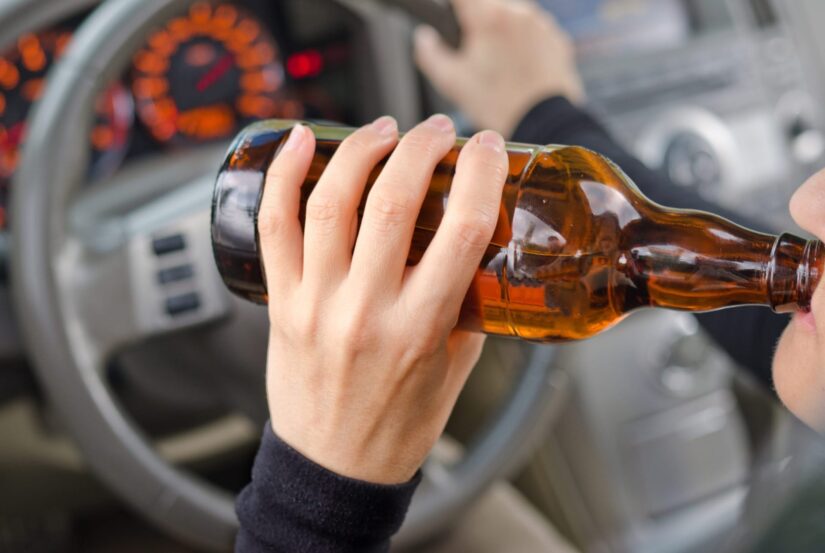
November 19, 2025
Picture this scenario: flashing lights on a dark highway, orange cones lining the road, and officers stopping drivers one by one. For many people, these moments raise a serious question: can law enforcement in Texas legally set up DWI checkpoints to catch drunk drivers? The short answer is no, but the reasoning behind it is more nuanced.
To assess DWI checkpoint legality in Texas, it is important to focus on constitutional law, state policy, and how officers handle DWI enforcement on state roads. If you or someone you love is facing DWI charges, you should get legal representation from our Texas DWI defense attorneys at the Napier Law Firm as soon as possible.
What Exactly Is a DWI Checkpoint?
A DWI checkpoint (also known as a sobriety checkpoint or roadblock) is a temporary stop set up by law enforcement where officers briefly detain drivers to check for signs of intoxication. Drivers might be asked to roll down their windows, answer a few questions, or take a breath test if the officer suspects alcohol use.
The idea is to deter drunk driving by making people aware that checkpoints are happening. Many states use them. But are Texas DWI checkpoints allowed? The legal answer is no.
The Constitutional Backdrop
The key question is not whether drunk driving is a problem, but whether stopping drivers without individualized suspicion violates constitutional rights. The Fourth Amendment to the U.S. Constitution protects against unreasonable searches and seizures. Normally, police need “probable cause” or at least “reasonable suspicion” to stop a vehicle.
In 1990, the U.S. Supreme Court ruled in Michigan Dept. of State Police v. Sitz that sobriety checkpoints can be constitutional if they are conducted in a specific, limited, and neutral manner. The Court said that public safety benefits outweighed the minimal intrusion on motorists.
However, the Supreme Court also left room for states to interpret their own constitutions differently. That is where Texas diverges.
Why Texas Does Not Allow DWI Checkpoints
Texas has long taken a firm stance against DWI checkpoints. In Holt v. State (1994), the Texas Court of Criminal Appeals ruled that such checkpoints are unconstitutional under the Texas Constitution unless authorized by a specific statewide program or statute — and no such law exists.
Essentially, Texas decided that it would not give law enforcement the authority to stop drivers without individualized suspicion. As a result, Texas DWI roadblocks are not currently legal. Officers cannot randomly stop vehicles to look for drunk drivers, even if the goal is public safety.
What Police Can Still Do
The lack of checkpoints does not mean that Texas is lenient about drunk driving. Law enforcement in Texas relies heavily on saturation patrols. These are special enforcement efforts where officers patrol specific areas known for high DWI rates, such as around bars, downtown districts, or major highways during holidays.
During saturation patrols, police still must have a legal reason to stop a driver. That reason could be:
- Swerving or drifting across lanes
- Speeding or braking erratically
- Failing to signal turns
- Driving without headlights at night
If an officer observes these behaviors, they can pull the driver over, ask questions, and conduct field sobriety or breath tests if intoxication is suspected.

The Role of Probable Cause
Every DWI arrest in Texas rests on one legal foundation: probable cause. Officers must have a legitimate reason to believe that a driver is intoxicated. That belief is based on observable facts, such as the smell of alcohol, slurred speech, bloodshot eyes, or erratic driving.
This is why DWI cases in Texas can hinge on the smallest details. If the initial stop was not based on probable cause, any evidence gathered afterward, including breath test results, could be thrown out in court. That constitutional safeguard is one of the main reasons why asking, “Are Texas DWI checkpoints allowed?” becomes such an important legal question.
What Happens If You are Stopped in Texas
Even though official DWI checkpoints are prohibited in Texas, misunderstandings can still occur. Some drivers report being stopped at what looks like a checkpoint but is actually a “safety inspection” or “license verification stop.”
These operations must follow strict rules. Officers can only check for things like expired registrations or unsafe equipment and not intoxication, unless they independently develop probable cause during the interaction. If you are stopped at such a location:
- Stay calm and courteous.
- Provide your driver’s license, registration, and proof of insurance when asked.
- You are not required to answer questions about where you have been or whether you have been drinking.
- If asked to take a breath or field sobriety test, remember that refusing carries automatic administrative penalties (like license suspension), even if it may help your criminal defense later.
The legality of the stop and any evidence gathered depends heavily on whether the officer stayed within lawful boundaries.
When a DWI Arrest Follows an Unlawful Stop
If someone is arrested for DWI in Texas following an unlawful stop, their attorney can file a motion to suppress the evidence. This means asking the court to exclude any evidence obtained through a constitutional violation. Without that evidence, the prosecution’s case often collapses. An unlawful stop might include:
- A checkpoint conducted without statutory authority.
- A stop with no observable traffic violation or safety concern.
- A stop based solely on anonymous tips without corroboration.
If the court agrees that the stop was unconstitutional, the DWI charge could be dismissed entirely.
How to Protect Your Rights if You Are Pulled Over
If you are stopped on suspicion of DWI in Texas, your best defense starts with how you handle the interaction. Here are some practical steps:
- Do not volunteer information. Politely decline to answer questions about drinking.
- Avoid making sudden movements or appearing confrontational.
- Comply with lawful orders, such as providing documents or exiting the vehicle.
- As soon as possible afterward, write down everything you remember about the stop: what the officer said, the time, location, and how long it lasted.
That information can become vital evidence in your defense, particularly if there are questions about whether the stop was justified. Most importantly, when you are facing criminal charges, whether for DWI or for assault causing bodily injury to a family member in Texas, be prepared to consult with a proven criminal defense attorney.

Get Our Top-Rated Texas DWI Lawyer On Your Side
At the Napier Law Firm, we understand that being stopped or arrested on suspicion of DWI can be one of the most stressful moments of your life. The laws surrounding Texas DWI enforcement are complex, and a single mistake by law enforcement can dramatically affect the outcome of your case.
As former prosecutors and seasoned trial attorneys, we know exactly how to challenge the legality of a traffic stop, field sobriety test, or arrest procedure. Our Texas DWI defense team has successfully handled hundreds of cases across Texas, protecting clients from unjust charges, license suspensions, and lasting criminal records.
We use our deep understanding of the Texas Penal Code and constitutional law to identify every possible weakness in the state’s case against you. Whether you were stopped during a holiday patrol or believe your rights were violated in an unlawful stop, you do not have to face the system alone. We will thoroughly analyze the details, question every assumption, and fight aggressively to protect your freedom and future.Let our experience, reputation, and relentless commitment to justice help you move forward in life. To schedule your free consultation, call us 24/7 at (713) 470-4097 or contact us online.